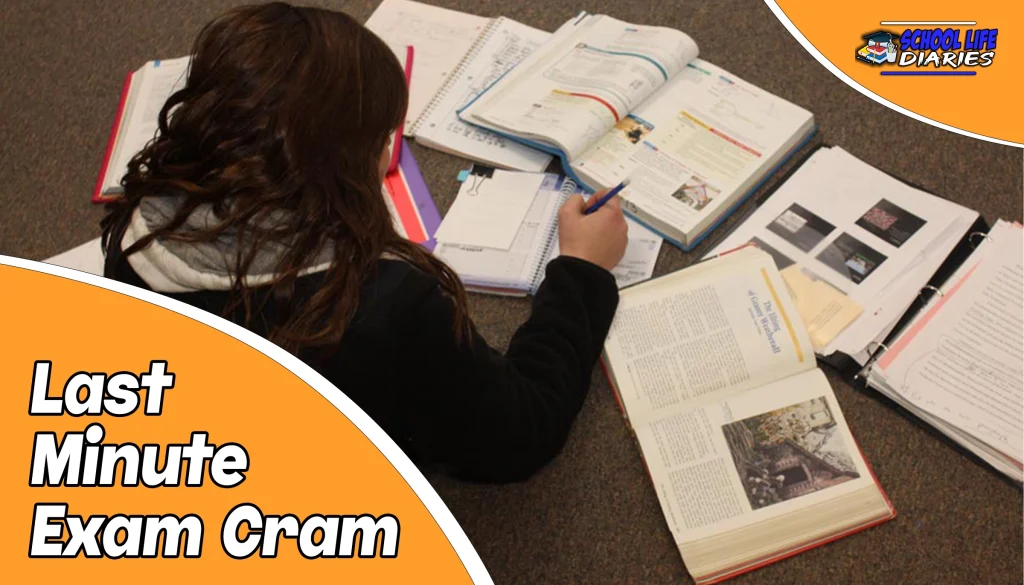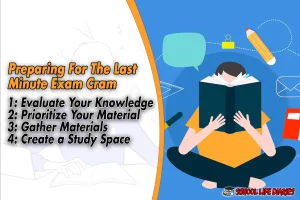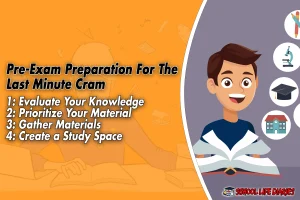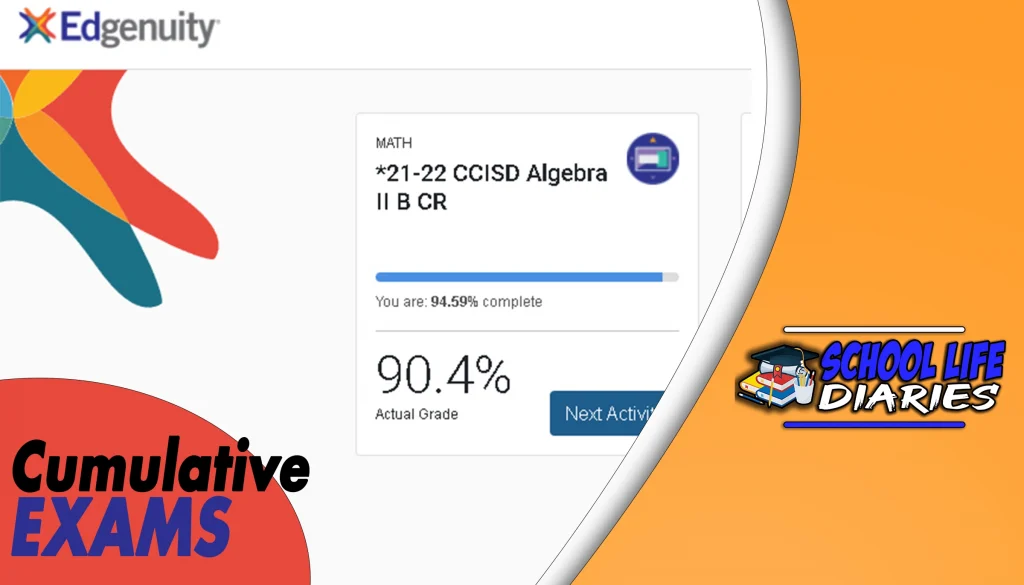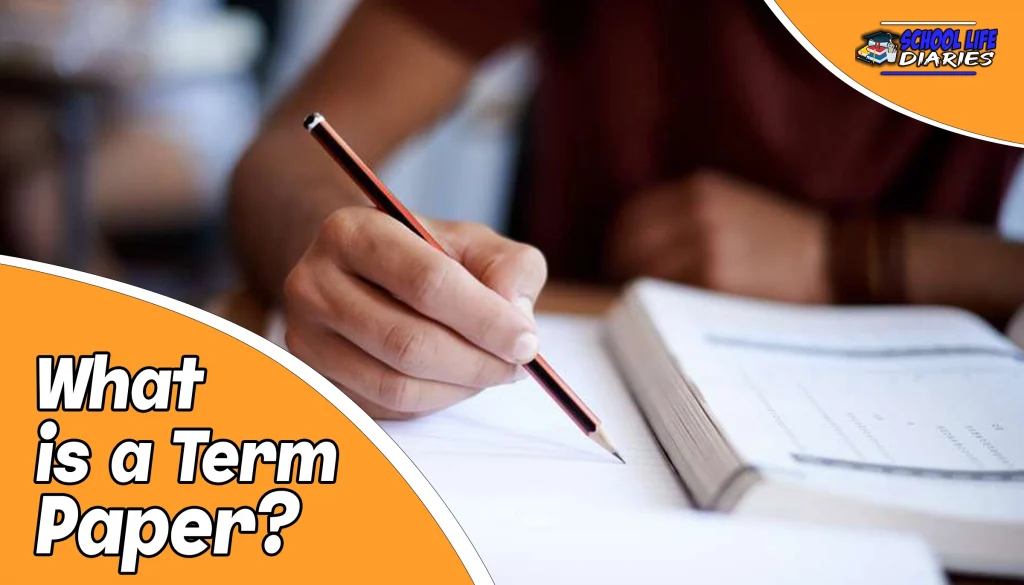As students, we have all faced the pressure of studying for an exam in one night. The idea of retaining a semester’s worth of information in just a few hours can be overwhelming. However, with the right mindset and study techniques, acing your exam is still possible.
In this article, we will provide you with some last-minute exam cram tips and tricks that will help you maximize your study skills time and achieve your desired grade.
Preparing For The Last Minute Exam Cram
1: Evaluate Your Knowledge:
Before you start studying, it’s essential to assess your knowledge and identify areas of strength and weakness. Evaluating your knowledge will help you focus on the topics that require the most attention and ensure that you make the most of your study time.
Importance of Evaluating Knowledge:
Evaluating your knowledge is crucial because it helps you understand what you already know and what you need to study more. It helps you avoid wasting time on topics you already understand while allowing you to prioritize the concepts you need to learn.
Methods to Evaluate Knowledge:
There are several methods you can use to evaluate your knowledge, such as:
- Flashcards:
Flashcards are an effective way to test your memory and recall important concepts. Write a question on one side and the answer on the other, and use them to quiz yourself.
- Practice Problems:
Practice problems allow you to apply what you’ve learned and identify areas where you need more practice.
- Quizzes:
Taking quizzes can help you evaluate your knowledge and identify areas where you need to improve.
Tips on Identifying Areas of Strength and Weakness:
Here are some tips on how to identify your areas of strength and weakness:
- Review Your Course Materials:
Review your course materials, including your syllabus, lecture notes, and textbook, to identify the most important concepts.
- Take a Practice Test:
Take a practice test to evaluate your knowledge and identify areas where you need more practice.
- Ask Your Teacher:
Ask your teacher for feedback on your performance in class and on homework assignments to identify areas where you need to improve.
2: Prioritize Your Material:
One of the most critical steps in preparing for an exam is prioritizing your study material. By focusing on the most important topics and concepts, you can make the most of your study time and improve your chances of success.
Importance of Prioritization:
Prioritizing your material is essential because it allows you to focus on the most important topics and concepts. It helps you avoid wasting time on material that is unlikely to appear on the exam and allows you to allocate more time to topics that are most likely to be tested.
Methods to Prioritize Material:
There are several methods you can use to prioritize your material, including:
- By Difficulty:
Start with the most challenging topics first and work your way through the easier ones. This method allows you to focus on the topics that require the most attention and ensure that you have enough time to master them.
- By Percentage of Exam:
Review the exam format and identify the topics that are most likely to be tested. Allocate more study time to these topics to ensure that you are well-prepared.
- By Importance:
Focus on the most important topics and concepts first, as these are the ones that are most likely to be tested and will have the most significant impact on your grade.
Tips on Creating a Study Plan:
Here are some tips on how to create a study plan:
- Set Realistic Goals:
Set realistic goals for each study session and for your overall exam preparation. This will help you stay motivated and focused.
- Use a Calendar:
Use a calendar to schedule study time for each topic and ensure that you have enough time to cover everything.
- Prioritize Your Study Material:
To make the most of your limited study time, prioritize the topics that are most likely to appear on the exam. Review the syllabus, lecture notes, and textbook to identify the most important concepts and information.
- Use Active Learning Techniques:
Instead of just reading the material, engage in active learning techniques such as summarizing, quizzing yourself, and creating flashcards. These techniques will help you retain information more effectively.
- Take Frequent Breaks:
Studying for hours on end can be counterproductive. Taking frequent breaks can help you recharge, stay focused, and avoid burnout. Use your break time to engage in relaxing activities such as exercise, meditation, or listening to music.
- Get Adequate Sleep and Nutrition:
Sleep and nutrition are essential for optimal brain function. Ensure that you get adequate sleep and eat healthy meals before your exam to enhance your cognitive performance.
3: Gather Materials:
Gathering the necessary materials is a crucial step in preparing for an exam, especially when you have limited time to study. By collecting all the materials you need, you can focus on studying and avoid wasting time searching for resources.
Importance of Gathering Necessary Materials:
Gathering the necessary materials is essential because it allows you to have everything you need to study efficiently. It ensures that you have access to all the resources you need, which can save you time and improve your chances of success.
Materials Required for Last-Minute Studying:
Here are some materials that are essential for last-minute studying:
- Notes:
Review your lecture notes, class handouts, and any notes you have taken on the material.
- Textbooks:
Review the relevant sections of your textbooks to reinforce your understanding of the concepts.
- Online Resources:
Take advantage of online resources such as video lectures, practice problems, and study guides.
- Study Groups:
Join or form a study group to review the material and discuss any questions or concerns you may have.
Tips on Organizing Materials for Efficient Studying:
Here are some tips on how to organize your materials for efficient studying:
- Create a Study Space:
Set up a designated study space that is comfortable and free from distractions.
- Make a Checklist:
Make a checklist of all the materials you need to study and ensure that you have everything you need.
- Prioritize Materials:
Prioritize the materials based on their importance and focus on the most critical topics first.
- Take Notes:
Take notes as you study to reinforce your understanding of the material and create a useful resource for future review.
4: Create a Study Space:
Creating a designated study space is crucial for effective studying, particularly when preparing for an exam in a limited time frame. Having a specific place to study can help you focus better and reduce distractions, which ultimately leads to better performance.
Importance of Having a Designated Study Space:
Creating a designated study space helps you get into the right mindset for studying. It allows you to establish a routine and signal to your brain that it is time to focus. Moreover, it helps in avoiding distractions and creates a conducive environment for learning.
Tips on Creating an Effective Study Space:
Here are some tips on creating an effective study space:
- Choose a Quiet Area:
Choose an area where there are minimal distractions, such as a quiet room, library, or a corner in your house that is away from the hustle and bustle.
- Get Comfortable Seating:
Make sure your chair and desk are comfortable, and your posture is ergonomic to avoid any physical strain.
- Good Lighting:
Good lighting is crucial for effective studying. It is recommended to study in a well-lit area or use a desk lamp to ensure adequate lighting.
- Keep it Clean and Organized:
Keep your study space clean and organized, free from the clutter that can distract you from studying.
Recommendations for Reducing Distractions:
During Studying Here are some recommendations for reducing distractions during studying:
- Put Away Your Phone:
Put your phone in silent mode and keep it away from your study area to avoid distractions.
- Avoid Social Media:
Avoid social media and other distracting websites while studying.
- Inform Family Members or Roommates:
Inform your family members or roommates that you are studying and ask them not to disturb you during this time.
- Listen to Soothing Music:
Listening to instrumental music or white noise can help you focus and block out distracting sounds.
Efficient Studying For The Last Minute Exam Cram
1: Active Studying:
When you’re crunched for time and need to prepare for an exam quickly, it’s crucial to adopt an active approach to studying. Active studying involves engaging with the material actively rather than passively, which helps retain information more effectively.
Importance of Active Studying:
Active studying is essential as it helps you process and understand the material more deeply. When you actively engage with the material, you’re more likely to retain information, and it helps in building a stronger foundation for further learning.
Tips on Active Studying:
Here are some tips on how to engage in active studying:
- Test Yourself:
Testing yourself is an effective way to evaluate your understanding of the material. Use practice tests or quizzes to assess how well you understand the content.
- Summarize the Material:
Summarizing the material in your own words helps you understand it better and also helps you retain the information.
- Use Mnemonics:
Mnemonics are memory aids that help you remember information quickly. For example, creating an acronym for a list of terms can help you remember them in a specific order.
Techniques for Retaining Information Quickly:
Here are some techniques that can help you retain information quickly:
- Chunking:
Chunking involves breaking down information into smaller, more manageable chunks. This technique can help you remember larger amounts of information more effectively.
- Visualization:
Visualization involves creating mental images to help remember information. Visualizing key concepts or creating mind maps can help you remember information better.
- Active Recall:
The active recall involves testing yourself on the material without looking at your notes. This technique helps in retaining information more effectively.
2: Time Management:
Time management is critical when it comes to last-minute exam cramming. With limited time available, it’s essential to make the most of your study sessions and use your time effectively.
Importance of Time Management:
Effective time management helps you make the most of your study sessions, ensuring you cover all the material you need to know for the exam. It also helps reduce stress and anxiety associated with last-minute cramming.
Tips on Managing Time Effectively:
Here are some tips on how to manage your time effectively:
- Break down Study Sessions:
Breaking down your study sessions into smaller, more manageable chunks can help you avoid burnout and retain information more effectively.
- Take Breaks:
Taking breaks between study sessions can help improve focus and concentration. It also helps in retaining information.
- Prioritize Tasks:
Prioritize your study tasks based on their importance and difficulty level. This approach helps you make the most of your time and ensures you cover all the essential material.
Techniques for Studying Efficiently in a Short Amount of Time:
Here are some techniques for studying efficiently in a short amount of time:
- Active Studying:
As discussed in the previous section, active studying is a highly effective technique for retaining information quickly.
- Skimming:
Skimming involves quickly scanning the material to identify key concepts and information. This technique helps you cover a lot of material quickly.
- Memorization Techniques:
Mnemonic devices, as discussed in the next section, can help you memorize information quickly.
3: Use Mnemonic Devices:
Mnemonic devices are memory aids that help you remember information quickly. By using mnemonic devices, you can turn complex information into simple, easy-to-remember pieces of information.
Importance of Mnemonic Devices:
Mnemonic devices are important as they help you remember information more effectively, especially when dealing with complex or abstract concepts.
Types of Mnemonic Devices:
There are several types of mnemonic devices, including:
- Acronyms:
Acronyms involve using the first letter of each word in a list to create a memorable word. For example, “HOMES” is a popular acronym used to remember the Great Lakes (Huron, Ontario, Michigan, Erie, and Superior).
- Visualization:
Visualization involves creating mental images to help remember information. For example, visualizing a story that incorporates key concepts or creating a mind map can help you remember information better.
- Rhymes:
Rhymes involve creating a memorable rhyme to help you remember information. For example, “I before E except after C” is a popular rhyme used to remember spelling rules.
4: Collaborating with Others: The Key to Successful Learning
Collaborating with others can be a game-changer when it comes to academic success. Whether it’s finding a study group or partnering up with a fellow student, working with others can help you learn more efficiently, gain new perspectives, and stay motivated. Here’s why collaboration is so important, and some tips on how to do it effectively.
Importance of Collaborating with Others:
Collaboration is an essential part of the learning process, as it allows you to share knowledge and ideas, ask questions, and receive feedback. It also helps you develop critical thinking and communication skills, which are crucial for success in the real world.
When you collaborate with others, you can pool your resources and work together to achieve common goals. Studying with others can help you stay on track and motivated, as you can hold each other accountable.
Tips on Finding Study Groups or Partners:
Finding the right study group or partner can make all the difference in your academic performance. Here are some tips to help you find the perfect match:
- Reach out to classmates:
Start by reaching out to your classmates and seeing if anyone is interested in forming a study group.
- Use online resources:
There are many online resources, such as social media groups and forums, where you can connect with other students.
- Attend study sessions:
If your school offers study sessions or tutoring, attend them and network with other students.
Recommendations for Studying with Others Effectively:
Studying with others can be a great way to learn, but it’s important to do it effectively. Here are some recommendations:
- Set clear goals:
Before you start studying, set clear goals and objectives for what you want to achieve.
- Communicate effectively:
Communication is key when collaborating with others. Make sure to listen actively and express your ideas clearly.
- Be open-minded:
Collaboration means working with people who may have different perspectives and approaches. Be open-minded and willing to learn from others.
- Stay organized:
Use tools such as shared calendars and to-do lists to stay organized and on track.
- Provide feedback:
Provide constructive feedback to your study group or partner to help them improve and vice versa.
Related Article: What Is A Theme Statement? Examples And Writing Tips
Pre-Exam Preparation For The Last Minute Cram
1: Practice Exams:
The Importance of Practice Exams in Exam Preparation:
Practice exams are a critical tool for students looking to prepare for an exam. Taking practice exams helps you become familiar with the exam format, build confidence, and identify areas where you need to improve. Here’s why practice exams are so important, as well as some tips on finding and using them effectively.
The Importance of Practice Exams:
Practice exams simulate the real exam experience and can help you feel more comfortable and confident on exam day. They also give you the opportunity to identify areas where you need to improve, so you can focus your study efforts more effectively. Taking practice exams can help you develop better time management skills, so you don’t run out of time on the actual exam.
Tips on Finding Practice Exams:
Finding practice exams can be a challenge, but there are a few strategies you can use to locate them:
- Ask your instructor or tutor:
Your instructor or tutor may be able to provide practice exams or recommend resources for finding them.
- Check online resources:
Many websites offer free or low-cost practice exams, including official exam websites, study guide websites, and online tutoring services.
- Use test prep books:
Test prep books often include practice exams and can be found at your local library or bookstore.
Techniques for Using Practice Exams Effectively:
To get the most out of practice exams, here are some techniques you can use:
- Take practice exams under exam conditions:
Take practice exams in a quiet, distraction-free environment and time yourself to simulate the real exam experience.
- Analyze your results:
After taking practice exams, review your answers and identify areas where you need to improve.
- Focus on weak areas:
Use your analysis to focus your study efforts on areas where you struggled.
- Repeat:
Take practice exams regularly to build your confidence and monitor your progress.
2: Relaxation Techniques:
The Importance of Relaxation Techniques for Exam Success:
Stress and anxiety are common experiences for many students during exam periods. However, excessive stress and anxiety can negatively affect your exam performance. This is where relaxation techniques come in.
Incorporating relaxation techniques into your study routine can help reduce stress and anxiety, increase focus and concentration, and improve your overall exam performance.
Here’s why relaxation techniques are so important, as well as some techniques and tips for reducing stress and anxiety before an exam.
The Importance of Relaxation Techniques:
Relaxation techniques are essential for both mental and physical health. During the exam period, stress and anxiety can take a toll on your body and mind, leading to fatigue, headaches, and reduced concentration.
Practicing relaxation techniques such as deep breathing, meditation, or yoga can help you manage stress and anxiety, reduce physical tension, and improve your overall sense of well-being.
Techniques for Relaxation:
Here are some effective relaxation techniques you can use during your exam period:
- Deep breathing:
Deep breathing exercises can help you relax, reduce stress and anxiety, and improve your focus and concentration. Take a deep breath, hold it for a few seconds, and then exhale slowly.
- Meditation:
Meditation can help you calm your mind and reduce stress and anxiety. Find a quiet, comfortable place, and try to focus your attention on your breath, a word, or a phrase.
- Yoga:
Yoga is a form of exercise that combines physical movement with deep breathing and meditation. It can help reduce stress and anxiety, improve flexibility, and increase your overall sense of well-being.
Tips for Reducing Stress and Anxiety before an Exam:
Here are some tips for reducing stress and anxiety before an exam:
- Get enough sleep:
Lack of sleep can increase stress and anxiety levels. Aim for at least 7-8 hours of sleep per night.
- Eat well:
A healthy, balanced diet can help reduce stress and improve your focus and concentration.
- Exercise regularly:
Regular exercise can help reduce stress and anxiety, improve your mood, and increase your energy levels.
- Take breaks:
Take frequent breaks during your study sessions to give your mind and body a chance to relax and recharge.
- Be prepared:
Being well-prepared for the exam can help reduce stress and anxiety. Make sure you have all the materials you need and review your notes and study materials thoroughly.
3: Exam Day Preparation:
The Importance of Exam Day Preparation:
Exam day can be a nerve-wracking experience, but preparing for it can help you feel more confident and less anxious. Adequate preparation can also help you perform better on the exam. Here’s why exam day preparation is so important, as well as some tips for preparing for the day of the exam.
The Importance of Exam Day Preparation:
Being well-prepared for the day of the exam can help reduce stress and anxiety and improve your overall exam performance. When you know what to expect and have everything you need, you can approach the exam with confidence and focus on doing your best.
Tips for Preparing for the Day of the Exam:
Here are some tips for preparing for the day of the exam:
- Get enough sleep:
Adequate sleep is essential for optimal brain function. Aim for at least 7-8 hours of sleep the night before the exam.
- Eat a healthy breakfast:
Eating a nutritious breakfast can help fuel your brain and improve your concentration. Avoid heavy or greasy foods, which can make you feel sluggish.
- Plan your travel:
Make sure you know how to get to the exam location and plan to arrive early to allow for any unforeseen delays.
- Pack the essentials:
Make sure you have everything you need for the exam, such as pencils, pens, erasers, calculators, and identification.
- Dress comfortably:
Wear comfortable clothing that is appropriate for the exam environment.
- Stay calm and focused:
Take a few deep breaths or practice relaxation techniques to help calm your nerves and stay focused.
Conclusion:
Preparing for exams can be a stressful and challenging experience, but there are many effective strategies that you can use to improve your performance. In this article, we’ve explored the importance of practice exams, relaxation techniques, and exam day preparation, as well as tips for finding study groups and partners and collaborating effectively.
In terms of last-minute exam cramming, it’s important to remember that cramming can be counterproductive and lead to increased stress and anxiety. Instead, focus on studying consistently over time and using effective study techniques to improve retention and recall.
We encourage you to put these tips and tricks into practice and find the study strategies that work best for you. By collaborating with others, using relaxation techniques, and preparing for the day of the exam, you can approach your exams with confidence and achieve the success you deserve.

